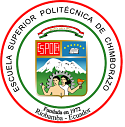Traceability matrix in requirements gathering: a systematic review of the literature
DOI:
https://doi.org/10.47187/perspectivas.6.2.221Keywords:
software requirements, traceability matrix, software traceabilityAbstract
The lack of a standardized traceability matrix has several disadvantages for the software development process. First, without a standardized traceability matrix, it is difficult to ensure the quality and integrity of the requirements. According to [5], the traceability of requirements is necessary to ensure that these requirements are complete, consistent and not redundant. Without a standardized traceability matrix, developers may lose sight of the original requirements and make changes that are not justified or that are not in line with the goals of change management in the project. According to [6], the traceability of requirements is essential to manage change in a project, as it allows developers to identify which requirements are affected by a change and how they are related to other requirements. Without a standardized traceability matrix, changes can be difficult to manage and can have a negative impact on the project as a whole. The Systematic Literature Review (SLR) is carried out, the different proposals of authors or companies on the Requirements Traceability Matrix (RTM) are analyzed and the weaknesses and strengths of each one are identified. All of these in order to propose a unified RTM based on the most common elements used by the RTM analyzed, which is composed of strengths that contribute to the quality and integrity of the requirements.
Métricas
References
Anaya, R., Tabares, M., & Arango, F. Una revisión de modelos y semánticas para la trazabilidad de requerimientos. Revista EIA, 2006.
Burlton, R. Business Process Management: Profiting from Process, 2001.
Carvajal, M. M. La Trazabilidad en el Proceso de Requerimientos de Software. Heredia, San José, Costa Rica, 2019.
García, P. Matriz de trazabilidad de requisitos (RTM), 2021. Obtenido de https://visuresolutions.com/es/requirements-traceability-matrix
Gotel, O., & Finkelstein, A. An Analysis of the Requirements Traceability Problem. International Conference on Requirements Engineering, 94-10, 1994.
Hebig, & Brinkkemper. Improving Software Product Management Processes: a detailed view of the Product Software Knowledge Infrastructure, 2010.
Hernández Sampieri, R., Fernández Collado, C., & Baptista Lucio, P. Metodología de la investigación (4ta. ed.). México D.F.: McGraw-Hill, 2003.
Hassnanin, M. A comparative study on traceability Approaches in software development. ITEE Journal, IV, 1-4, 2015.
Kitchenham, B., Budgen, D., Brereton, P., Turner, M., Charters, S., & Linkman, S. Large-scale software engineering questions–expert opinion or empirical evidence? IET software, 1(5), 161-171, 2007.
Downloads
Published
How to Cite
Issue
Section
License
Copyright (c) 2024 Enrique Alexandre Kattz Villa, Patricia Martínez Moreno, José Antonio Vergara Camacho, Luis Antonio Morales Velázquez

This work is licensed under a Creative Commons Attribution 4.0 International License.
Copyright
The authors of the manuscripts will retain their copyright on their articles published in Pespectivas Journal. These rights allow the authors to present their manuscripts in public, prepare derivative works, reproduce them physically by printing and distribute them on their social or research networks. These rights will remain unchanged as long as the authors respect the publication and free access policy of Perspectivas Journal.
Publication Rights
Perspectivas Journal reserves all first publication rights on each of the articles that the authors have sent to its review and publication process. It implies that authors will only exercise their copyright if they state the source and origin of the publication correctly, mainly when they distribute, share, present, or use their articles' total or partial content.














